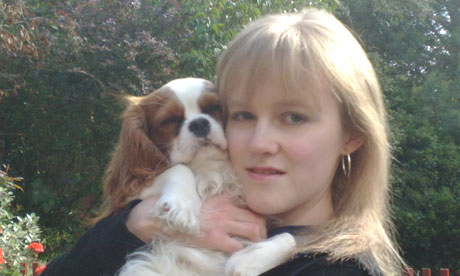
I developed ME in 1997, just after my 11th birthday. At the time I had no idea how life-shattering it would turn out to be. I had previously enjoyed going out with friends, dancing, walking my dog, but suddenly found myself too weak to get out of bed in the mornings, and too sick to eat. For a long time I was practically nocturnal: sleeping well into the afternoon and awake most of the night. My body was beset with pain, like I was being stabbed all over.
I now believe that a combination of bullying throughout much of my school life and a quick succession of viral and bacterial infections triggered my illness. Back then, I had no idea what was wrong with me, and with no cure available and no one who really knew the best way to deal with it, it was very much a case of muddling through.
Over the course of three or four years, I gradually returned to school. When I was 12, I could manage four hours a day. But I was left with no energy left for anything else. Every day, without fail, I came home with a dreadful headache. Because of the "invisible" nature of ME, I did not look particularly ill, and the teachers told my parents and doctors they didn't believe there was anything wrong with me. Eventually, at 15, I relapsed.
The nausea was all-consuming, and eating almost impossible; some doctors began to suspect anorexia but my dwindling strength left me too shattered to explain myself coherently. I was forced into hospital for tube-feeding, and remained there for over two months. From that day to this, nausea has been the most destructive symptom of my ME.
With a total fear of medics and of being re-admitted, I became depressed. For four years I was housebound, the lowest point coming when I collapsed one day in terrible pain, and had to be carried up to my bedroom, limp as a ragdoll. It was then I realised I had hit rock bottom. The house was cast into shadow because of my light sensitivity, and any loud noises had to be avoided. Any smell could make me feel dreadfully sick. My muscles were so wasted that I could barely hold a spoon for more than a few minutes. Antidepressants helped for a while, but the effects wore off and I no longer take them.
After I turned 20, my attitude began to alter. It suddenly hit me that I had missed my teenage years, and the thought of losing my 20s to this illness was too awful to contemplate. I began gradually exposing myself to what I called "the outside world": spending a few minutes in daylight; stepping out into the garden and inhaling the fresh air; getting used to the sound of traffic by briefly poking my head out of the front door. I went to the shops, and met up with friends. Everything had to be slowly built up until I could cope with longer periods of activity. I began studying with the Open University, which gave me a purpose in life – something that had been missing for many years.
It frustrates me that attitudes towards ME have changed little in recent years. I still meet people (even ones in the medical profession) who think it is nothing more than "tiredness". ME still affects me. Severe nausea means I frequently have to force myself to eat; my muscles can suddenly give up on me for no reason and cause me to get very shaky and painful. But I have found my own ways of dealing with these problems, and even though ME stole much of my childhood and young adult life, I feel that I am incredibly lucky to have come this far.
Levick was an online friend of Lynn Gilderdale, who was helped to die by her mother Kay

